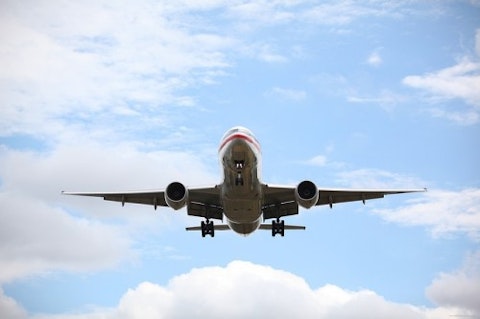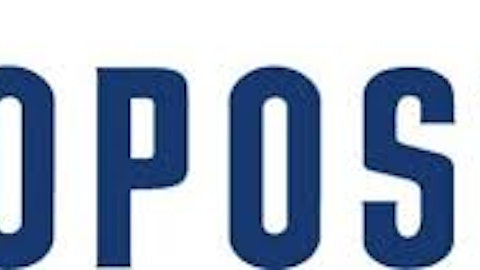Hirzel Capital Management, founded and managed by Zac Hirzel, has reduced its stake in Hawaiian Holdings Inc. (NASDAQ:HA) by some 18% to 3.26 million shares, according to a recent 13D filed with the Securities and Exchange Commission. Following the decrease, Hirzel holds 5.9% of the company’s outstanding common stock. It’s not the first time when the Texas-based hedge fund trims its stake in Hawaiian Holdings in the last couple of months, as it also reported discarding 542,800 shares at the beginning of June. It’s also worth mentioning that Zac Hirzel has served as a member of the company’s board of directors since December 2013.

Hirzel Capital Management is an activist hedge fund established by Zac Hirzel in 2008. The investor takes on a fundamental approach to investing by using both long and short strategies. Hirzel Capital Management’s equity portfolio is valued at around $1.03 billion and its holdings are diversified across the consumer discretionary, finance, energy, and transports sectors.
Follow Zac Hirzel's Hirzel Capital Management
Hirzel Capital Management is just one of more than 700 hedge funds, whose equity portfolios we collate quarterly as part of our small-cap strategy. Even though most smaller investors believe that tracking 13F filings is a fruitless endeavor because they are filed with a delay of a up to 45 days after the end of a calendar quarter, the results of our research prove that is not the case. To be on the safe side, we used a delay of 60 days in our backtests that involved 13F filings between 1999 and 2012 and we still managed to gain an annual double-digit alpha. Moreover, since the official launch of our strategy in August 2012, our small-cap strategy has obtained cumulative returns of more than 123%, beating the S&P 500 Total Return Index by greater than 66 percentage points (see the details).
Hawaiian Holdings Inc. (NASDAQ:HA), through its subsidiary Hawaiian Airlines Inc., provides scheduled air transportation of passengers and cargo services. The company provides transportation amongst the Hawaiian Islands, as well as between the Hawaiian Islands and several cities in the United States, South Pacific, Australia, New Zealand and Asia. Hawaiian Holdings’s stock has rebounded from the significant slump at the end of January and is currently trading flat year-to-date. Aside from Hirzel, another shareholder of Hawaiian is Joel Greenblatt’s Gotham Asset Management, which holds a $26.31 million stake, consisting of 1.01 million shares.
Let’s start by going back in time for a while. The stock of the company surged by some 170% in 2014, which has been primarily supported by strong unit revenue performance and falling fuel prices. However, the management announced earlier this year an abrupt setback of its unit revenue momentum, so the stock plummeted at the end of January as the market overreacted to the downgraded revenue outlook. Overcapacity has also been occasionally hurting the unit revenue generated by Hawaiian Airlines, which mainly arises because the company flies most of its long-haul routes with big aircrafts (i.e. a 294-seat A330). Indeed, the existing fleet does not allow the company to fine-tune capacity, but this will change in the upcoming years. Hawaiian Airlines updated its fleet plan and expects to receive 16 A321neos (190-seat aircraft) from Airbus starting from 2017, which will enable the company to reduce capacity when needed. Subsequently, the company will be able to match the demand more precisely, resulting in stronger margins for the company.
On July 28, Hawaiian Holdings has released its financial results for the second quarter of 2015, posting revenues of $571.29 million, up from $540.28 million reported a year ago. At the same time, the company reported adjusted net income, reflecting economic fuel expense and excluding loss on extinguishment of debt, of $37.5 million or $0.61 per diluted share, up $15.1 million or $0.26 year-over-year. Even though a strong U.S. dollar has had an adverse impact on the company’s financial results by reducing the dollar value of the tickets sold abroad, the strong demand across its network and low fuel prices have offset this headwind and other transitory challenges faced by Hawaiian Airlines.
Disclosure: None


